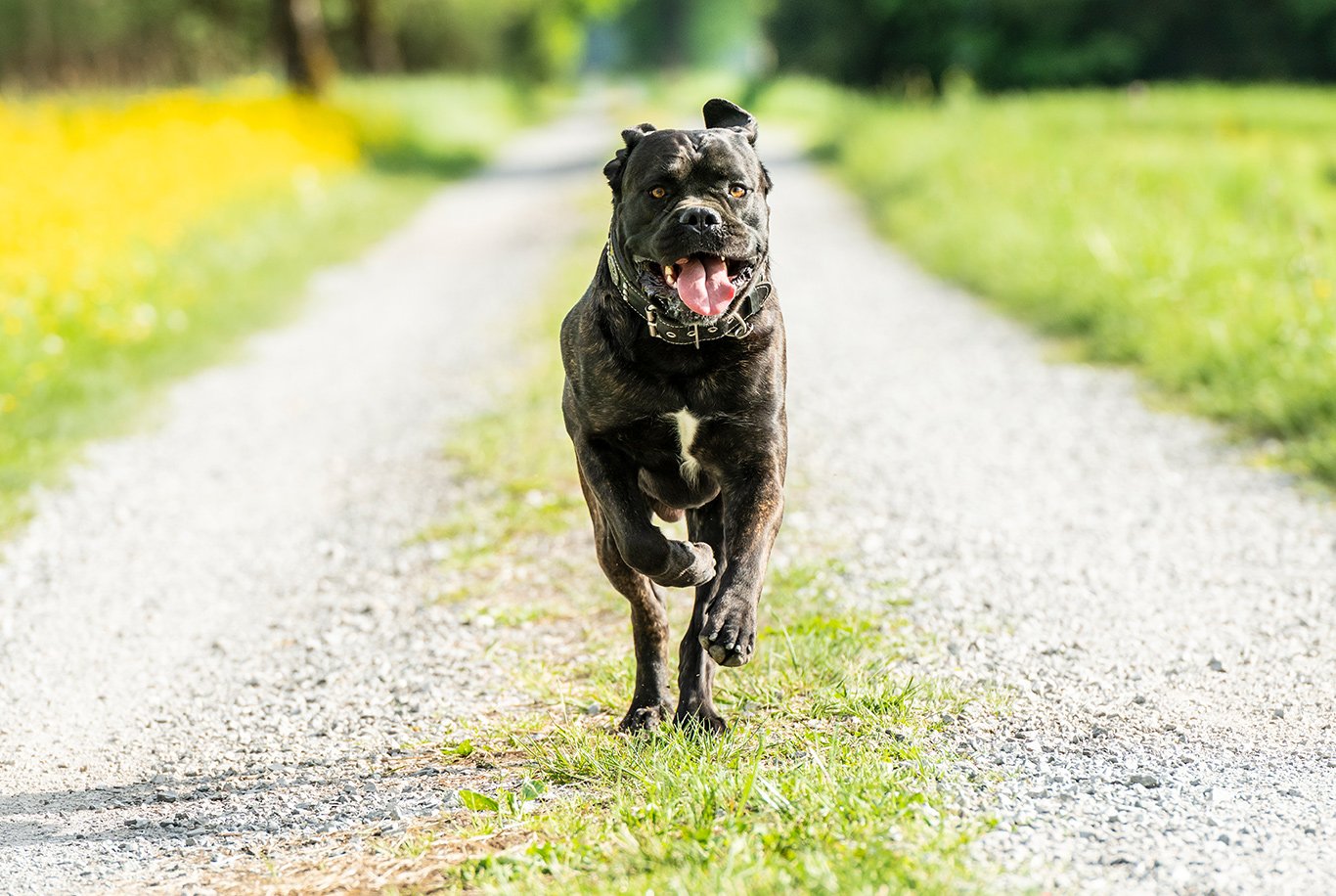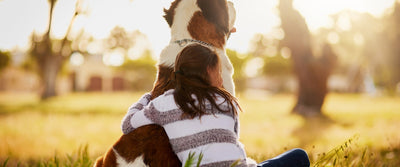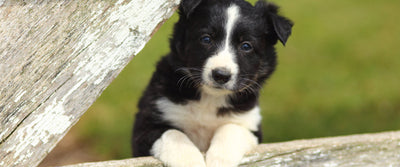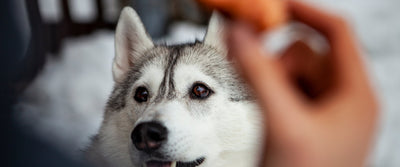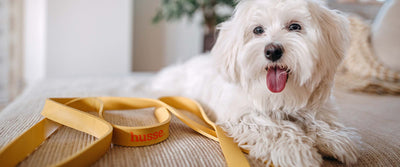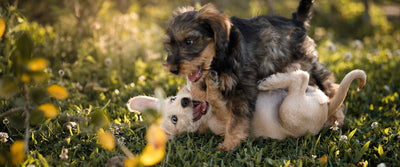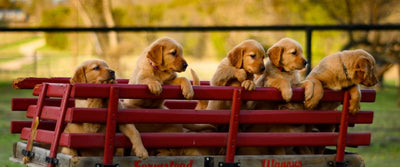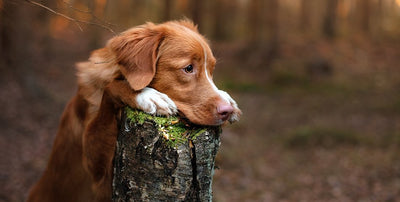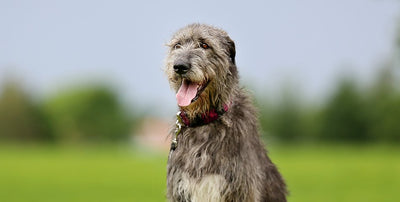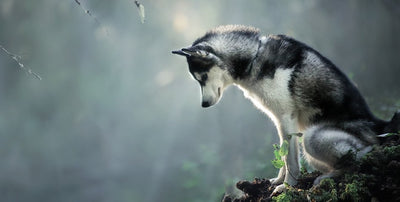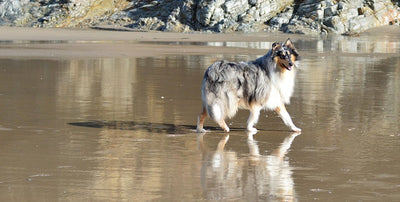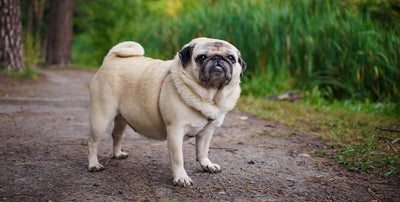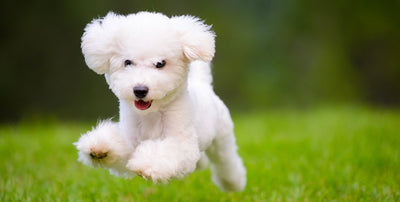Stunning guard dog, requires a lot of attention
Cane corso is an Italian breed of guard dogs in a mastiff type. Dogs of this breed usually work as a watchdog or a tracking dog.
 Country of origin: Country of origin: |
Italy |
 FCI group: FCI group: |
Group II, section 2.1, mollosian |
 Temperament: Temperament: |
|
 Colors: Colors: |
black, grey |
 Weight: Weight: |
Male: 45–50 kg, Female: 40–45 kg |
 Height: Height: |
Male: 62–70 cm, Female: 58–66 cm |
 Life expectancy: Life expectancy: |
from 10 to 12 years |
Cane Corso puppies
Cane corso is an intelligent dog that enjoys working with people, but can sometimes be a bit stubborn. Cane corso puppies usually pick up commands and tricks quickly, if they see a purpose in them. While training with your cane corso puppy be consistent and strict, but not harsh. Puppies of this breed respond best to a fun and enjoyable training sessions that are filled with rewards and play during breaks. Once your puppy associates training with fun you’ll see results much faster. Cane corso puppies do require socialisation at an early age, which will significantly improve his behaviour later on. Cane corso puppies should never be pushed to their physical limits. Too intense of a workout can cause stress on your puppies joints and result in permanent damage. You can support your puppy’s joints with a good diet - Valp Maxi is a dry puppy food explicitly made for large and giant breeds of dogs. Added glucosamine and chondroitin will ensure healthy joints and strong bones.
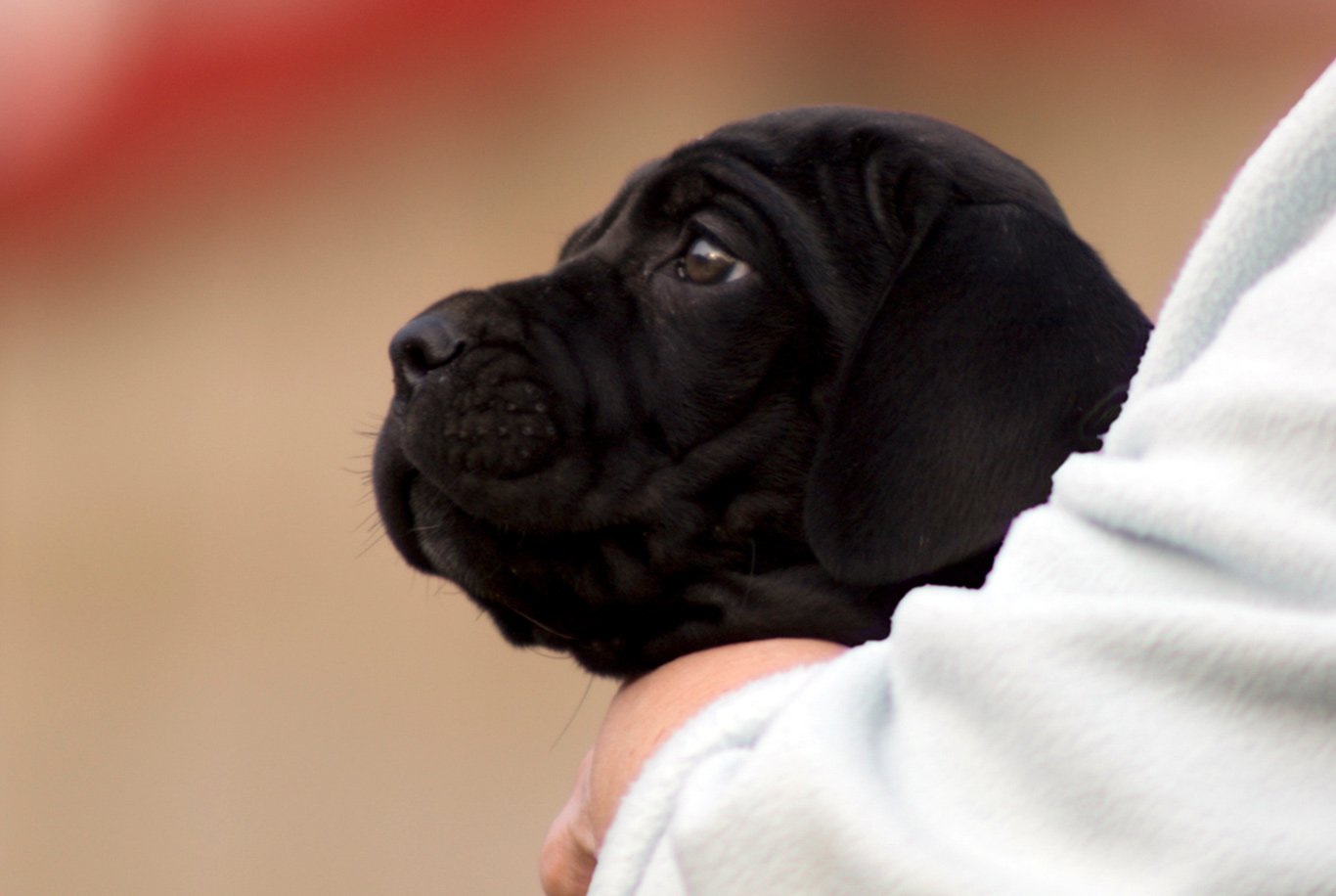
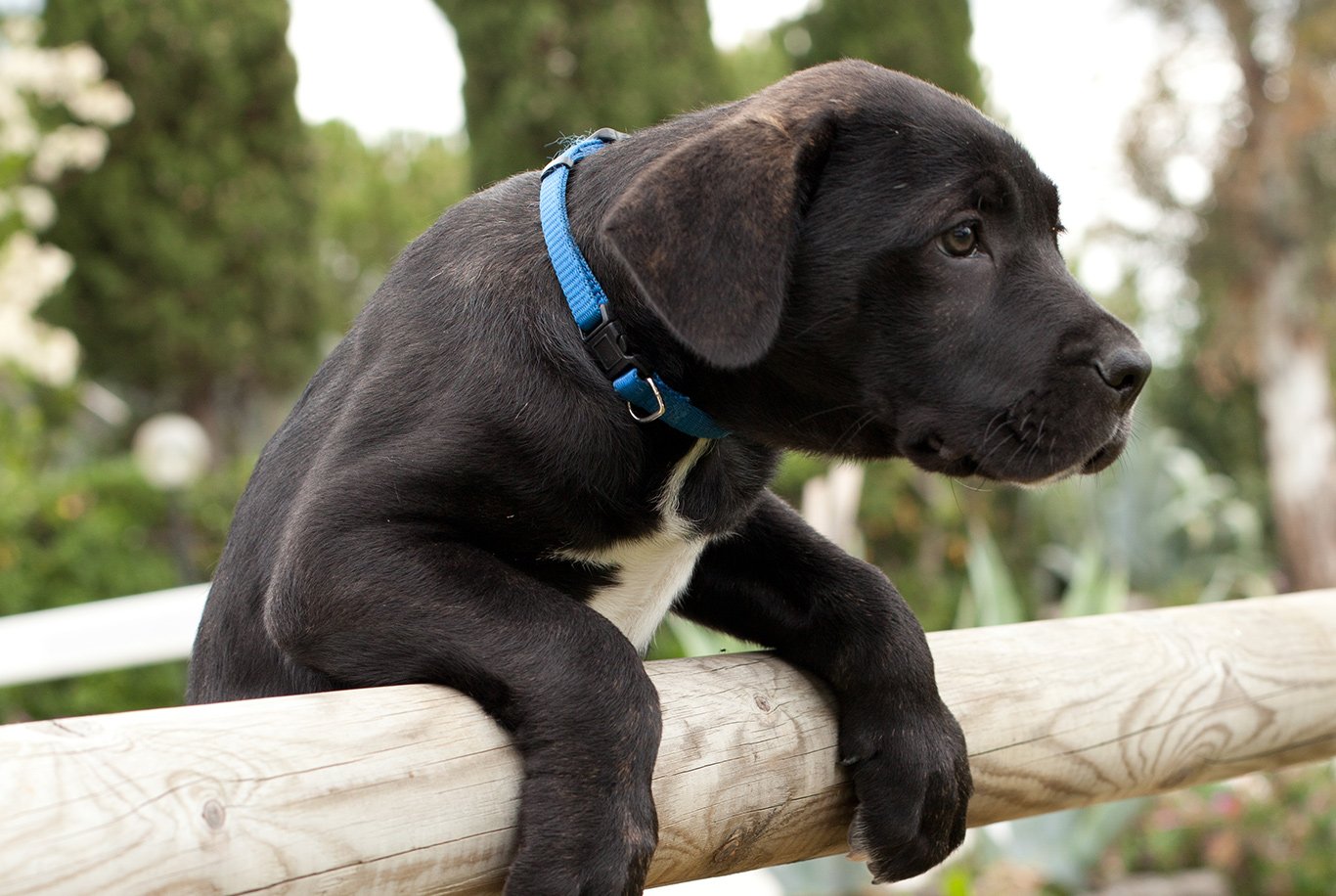
Cane Corso nutrition
As a massive dog, cane corso can experience issues with their joints and bones. With large and giant dog breeds it is necessary to complete their diet with glucosamine and chondroitin, which will support the condition of your dog’s osteoarticular system. Choose a diet made with large and giant dog breeds in mind, as the formulas will provide your pup with nutrients necessary for their health. These formulas will provide your dog with enough calories, vitamins and all minerals. With cane corso maintaining a healthy weight is key to your dog’s overall well-being. Excess weight can put additional stress on your dog’s joints, which can lead to serious issues or damage. Don’t overfeed your dog and provide him with enough physical activity throughout the day. Cane corso is a dog breed somewhat prone to gastric dilatation-volvulus - a slow feeding bowl can greatly decrease the chances of a stomach twist.
Detailed description of a Cane corso
Cane corso is an excellent guard dog. Always happy to help, loyal towards their owner. They make for a great family dog and typically get along well with children. They do require early socialisation, which can help them to build good relationships with other animals.
Origin
Cane corso breed is probably descended from dogs that accompanied Romans in their conquests. There were two types of Molossian type dogs In ancient times - heavier once, used in wars and duels, and lighter dogs, mainly used as herding dogs. Cane corso is believed to be related to the latter. Many mentions of this breed of dogs can be found in the art of the Renaissance. For years cane corso was very popular in Italy. After war the population of the breed decreased significantly, and breeding program resumed as late as the 1980s. Antonio Morsiani formulated the breed standard in 1987. The FCI officially recognised the breed in 1996.
Appearance
Cane corso appear as athletically build dogs. These dogs are muskular, with strong legs and broad neck. They have short but thick coat that lays perfectly flat against the skin, therefore does not require extensive care. Cane corso has a square head and muzzle with typical for Molossian type dogs flews. Triangularly shaped ears hang on the side of the broad head. Cane corso can come in a vast variety of coat colours, ranging from black, graphite, dark grey to cream. Dogs of this breed usually have a black marking on their muzzle.
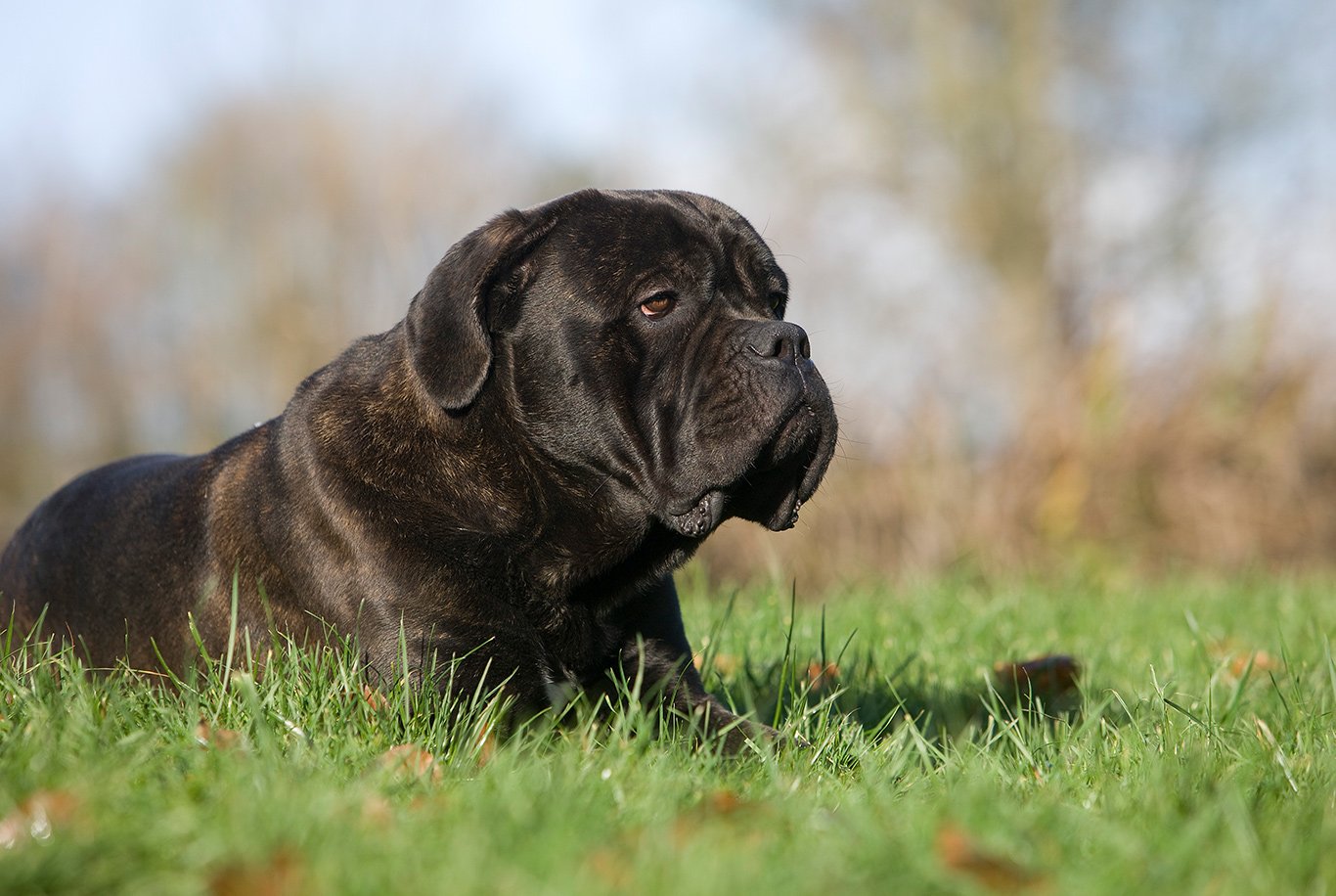
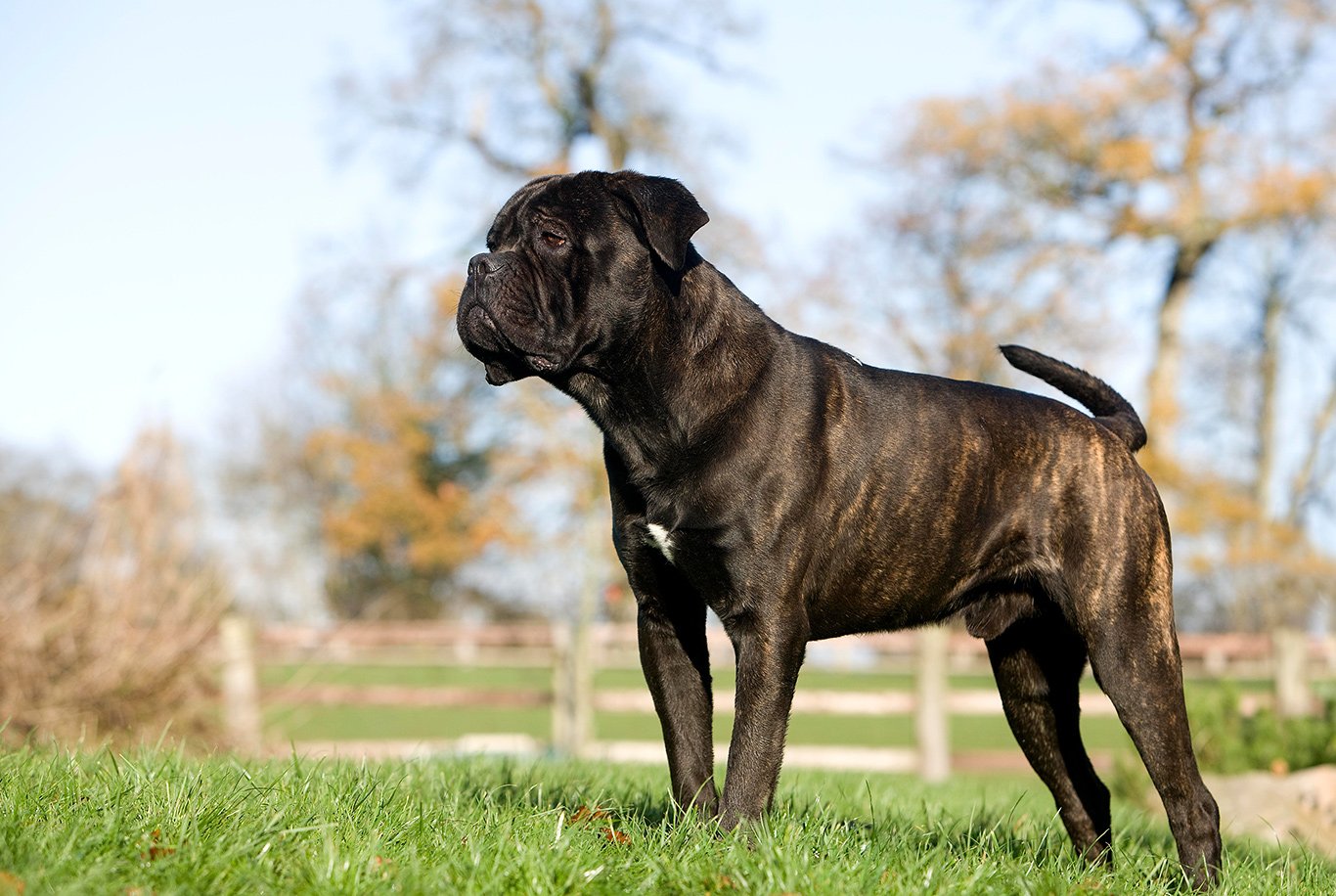
Behaviour
This breed of dogs can get strongly attached to their owners. Cane corso are very warm towards all the members of the household. They love the time spent with their caretakers and can accompany their owners in many tasks and activities around the house. Cane corso are usually weary towards strangers and can try to guard their owners if they feel someone is posing a threat. Dogs of this breed are not usually aggressive, but should not be provoked - they can get hostile. Early socialisation of cane corso dogs greatly improves their behaviour around other animals.
Requirements
Cane corso dogs love the company of humans and require a lot of attention and time. Cane corso can be a bit challenging breed to train - these dogs need a consistent teacher and early socialisation.
Daily care
Short coat of a cane corso is easy to take care of. You can brush your dog once a week, but during shedding season you might have to switch to daily brushing. Cane corso’s coat does not collect dirt easily, so after a walk or play outside you might have to just wipe your dog with a towel or a rubber glove. You can use dry shampoo to refresh your dog’s coat from time to time. It’s best to bathe a cane corso dog once they get particularly dirty of bad-smelling. Take care of your dog’s nails, and trim them if they get too long. You can apply a moisturizing balm if your dog’s paws get dry. Always remember to check your dog’s ears and eyes at the regular.
Dr Anna Plummer
Vet and blogger


